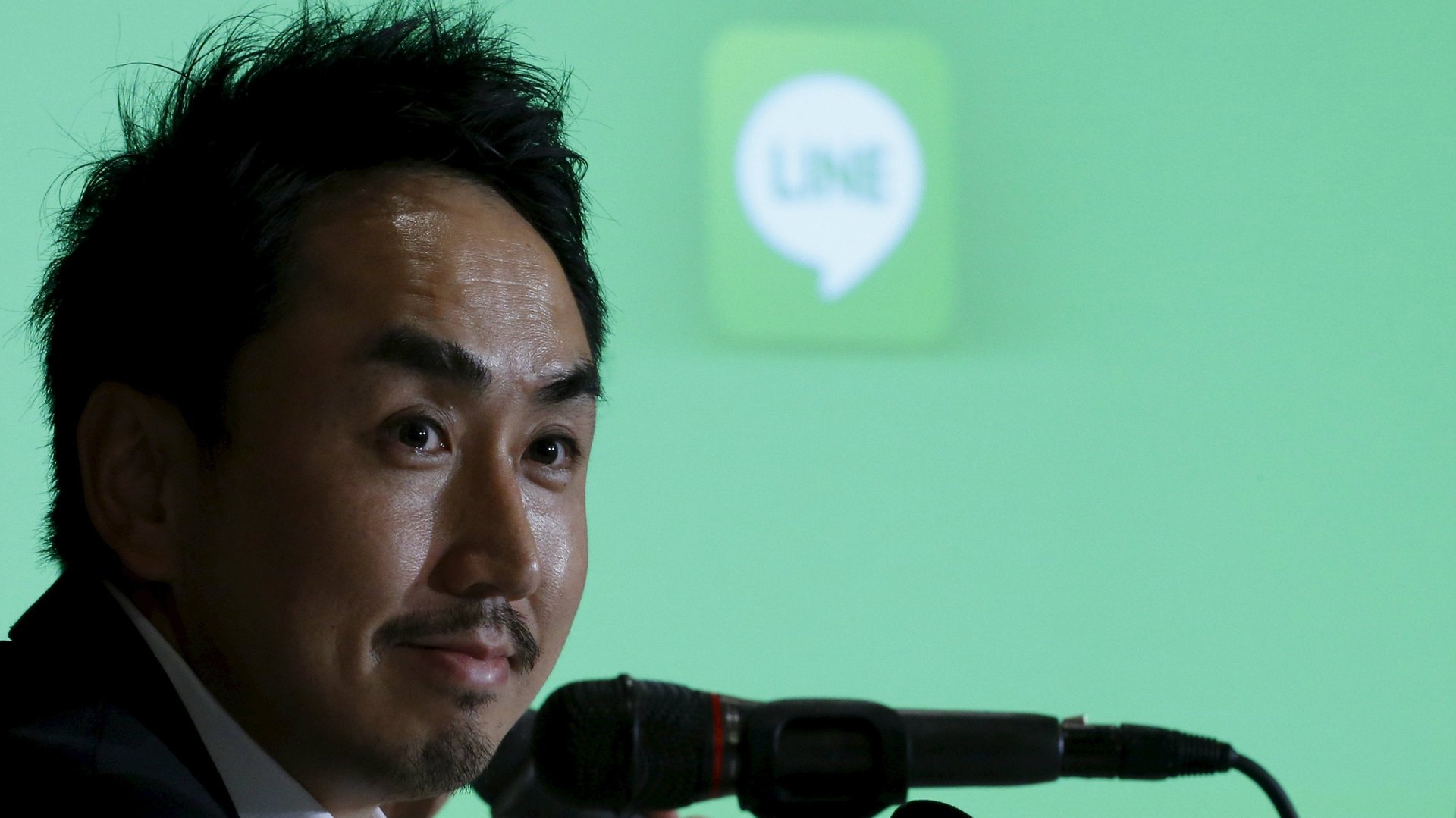The perpetual delay of a Line IPO suggests chat apps might not be such a big deal after all
Are messaging apps the ultimate smartphone gateway to treasure troves of revenue? That’s what Tencent, Facebook, and Snapchat might have you believe. But struggles at Line indicate that this model has its limitations.


Are messaging apps the ultimate smartphone gateway to treasure troves of revenue? That’s what Tencent, Facebook, and Snapchat might have you believe. But struggles at Line indicate that this model has its limitations.
The Japan-based messenger has delayed its IPO for the second time, the Wall Street Journal reports, citing unnamed sources familiar with the matter. Reports of an upcoming Line IPO, estimated to be worth as much as 1 trillion yen ($8.2 billion) first surfaced in 2013. While Line’s parent company Naver has continuously remained tight lipped about potential plans to list, a filing with the Tokyo Stock Exchange and subsequent reports of backpedaling indicate the company is struggling to find the optimal time to list.
That time does not appear to be now. While Line remains private and doesn’t have to disclose all of its financials, the company’s growth is plateauing. Revenues decreased 1% quarter-on-quarter for the period ending in June. Line’s monthly active user count has increased from 170 million to 211 million since September 2014, but the company hasn’t disclosed where those users are coming from. In the absence of such information, that suggests that Line retains only three countries as core markets: Japan, Taiwan, and Thailand.
A Line spokesperson refutes the Wall Street Journal’s report, claiming that it has not delayed its IPO and that its filing remains under review in the US and Tokyo. She adds that markets are too volatile to provide a timetable for a listing.
Line makes about 60 percent of its revenue from game-related purchases, while the rest comes from paid emoji (aka “stickers”). But the games industry is made up of one-hit wonders, and once enthusiasm for titles dampens, money dries up.
In an effort to broaden out, the company has launched an e-commerce app, a taxi-hailing app, a manga app, and TV app, and a music app in some of those markets. But those efforts haven’t translated to more engagement, or more money, Serkan Toto, a games industry analyst based in Tokyo, tells Quartz.
“I think the top reason for Line is that the company has a hard time finding new lines of business apart from games,” Toto said. “Line Music was the latest attempt to add a new element to the Line platform, but it seems the initial results were not enough to push the company over the top and consider an IPO soon. E-commerce, mobile payments, cab hailing services, and actually most games haven’t really delivered so far.”
Despite its marginal popularity in the West, a Line IPO would be of major significance for the tech industry. All previous valuations of messaging apps have come from private acquisitions—and pricey ones at that. In February 2014, Facebook acquired WhatsApp for $19 billion in cash and stock. Earlier, Japanese e-commerce giant Rakuten bought Viber, a messaging app popular in Southeast Asia, for $900 million. Both of those startups were running a loss at the time of their purchase.
The bullish case for messaging justifies those price tags with the fact that smartphone owners spend more time on chat apps than on any other other smartphone app, opening the door for these apps to divert users attention towards ads or e-commerce. China’s WeChat remains the industry’s holy grail, having transformed itself from a messenger into a publisher, an arcade, and an e-commerce marketplace, all wrapped in a single app. HSBC values WeChat at $83.6 billion.
But Line is learning that following WeChat’s lead is no guarantee that its users will spend more time, or more money, on extra features.
This piece has been updated with comments from Line.